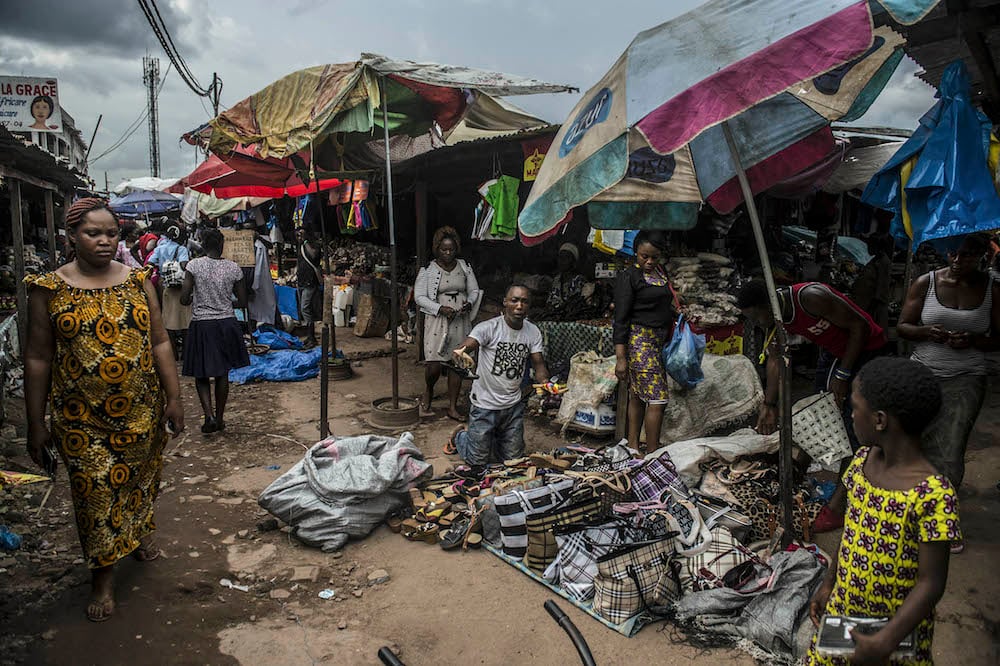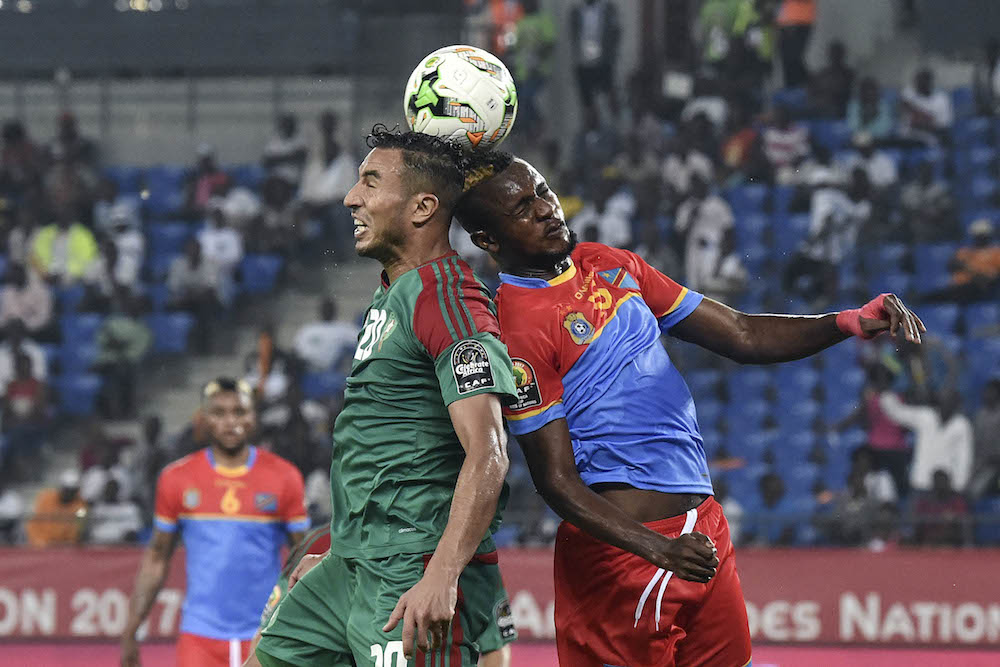Afcon colour and commitment: Fans at the Burkina Faso vs Cameroon match.
The 2017 Africa Cup of Nations finally got underway in Gabon after months of uncertainty caused by reports that the country was not ready to host the event and images of the incomplete Oyem Stadium fuelled speculation that the tournament would be delayed.
Although it is true that the stadium and the airport in the area are still under construction, commercial planes carrying the teams were diverted to nearby Equatorial Guinea, where helicopters were on standby to fly them into Gabon and buses then ferried them to their hotels.
Gabon has received its share of criticism, with people asking how the Confederation of African Football’s inspection committees passed the country as being ready to host the event when, in truth, it was well behind schedule.
Few people, however, seem to remember that Gabon was not supposed to have hosted the event in the first place. Morocco was the original host but, after the Ebola outbreak that devastated West Africa, the North Africans opted to forfeit their right to host rather than accommodate people they feared may potentially carry the deadly virus.
Beleaguered Gabonese President Ali Bongo knew that football was the opium of the masses and that hosting a successful tournament would polish his waning image, particularly with presidential elections scheduled for a few months before the tournament kicked off.
Yet bringing Africa’s premier football event to his country does not seem to have had the desired effect: after highly disputed election results, several protesters lost their lives and the opposition party called for a boycott of the tournament.

Life goes on in Gabon: A man sets out his wares on the ground in a market in Franceville ahead of the Africa Cup of Nations. (Khaled Desouki/AFP)
Tour operator Franklin Mvoundza, operating from Franceville, painted a gloomy picture of the situation in Gabon and questioned the logic of staging the tournament there when most of the populace could not afford basic necessities.
“The tournament was supposed to have boosted tourism,” said Mvoundza. “But we have only seen an increase in the number of journalists and participating teams. General tourists can be counted on the palm of one’s hand.
“I do not know if it’s the economic or political situations or the lack of proper advertising and marketing the event, but Gabonese people are generally unhappy because the organisation of the tournament is costing a lot of money the government can ill afford to waste.”
He explained: “For example, we are experiencing health, education and social problems. Our hospitals lack medicinal supplies as well as adequate equipment and the event does not seem to have the kind of impact that could make the life of an ordinary Gabonese better.”
On the field, however, the action could not have been scripted better. In fact, the 2017 Afcon in Gabon has been primed as a perfect platform for so-called minnows to step out of the shadows and cause havoc. They have registered shock results since the start of the biennial event a week ago.
Ghana and Senegal managed to keep a semblance of order and respectability at the end of round one, with hard-fought victories over Uganda (1-0) and Tunisia (2-0) respectively.
But if the truth be told, the dominant narrative has been that of unfashionable nations tearing the form book to shreds, giving hope to underdogs the world over.
Take Cameroon for instance. They were tipped as one of the pretournament favourites. They hardly got out of first gear in their opening match against a plucky Burkina Faso in a goalless draw the underdogs should have easily shaded.
Algeria, the number one-ranked country on the continent, condescendingly looked down on Zimbabwe and even gave subtle hints during a prematch conference that the men from Harare did not deserve to share the same stage with them.
This is, after all, a nation that produced Riyad Mahrez, the reigning African footballer of the year.
But Algeria found themselves holding a tiger by the tail as the lithe Khama Billiat tore their defence to pieces and led them a merry dance while hitting the crossbar twice.

Democratic Republic of the Congo midfielder Merveille Bokadi (right) and Morocco’s Aziz Bouhaddouz clash during the group C football match on Monday. (Issouf Sanogo/AFP)
The North Africans sighed with relief after inexperienced Zimbabwe gifted them a goal in a match that ended in a 2-2 stalemate.
Defending champions Côte d’Ivoire did not fare any better at Port Gentil Stadium, struggling for long periods to find their rhythm against a sleek-moving Togolese side led by Sheyi Adebayor, eventually also settling for a goalless stalemate.
Bafana Bafana may be missing in action, but South Africa’s Pitso Mosimane, the CAF African coach of the year, has become a symbol of pride and hope for many African coaches who seem not to be respected by African football federation presidents who tend to prefer foreign coaches to the local product.
Of the 16 teams taking part in the 31st edition of Afcon, only Zimbabwe, Senegal and the Democratic Republic of Congo are managed by locals and the rest are guided by foreign coaches.
But since the tournament got under way, most of these imported coaches haven’t been able to hold a candle to the local boys.
Kalisto Pasuwa has Zimbabwe playing the most delightful brand of football, with Billiat seeming to act as the conductor of their orchestra, and dreadlocked Senegalese coach Aloui Cisse has turned the Teranga Lions into a fearsome outfit.
High five to Florent Ibengé, who masterminded the DRC’s sensational 1-0 triumph over Morocco in a result that seemed to indicate the football gods had exchanged sardonic smiles over the misfortune that befell the Atlas Lions as punishment for refusing to host this tournament.
North Africa, well represented by four out of five affiliates, stumbled over their feet at the first hurdle as they collectively secured a paltry two out of a possible 12 points. Tunisia and Morocco lost, whereas Egypt and Algeria were held to draws.
Those who thought the tournament would be a dull affair without regulars Nigeria, Zambia and, to some extent, even South Africa, were left to eat humble pie as newcomers Guinea-Bissau did not disappoint, holding hosts Gabon to a stunning 1-1 draw in the opening match.
And the best thing? This is only the group stage – there’s more to come.